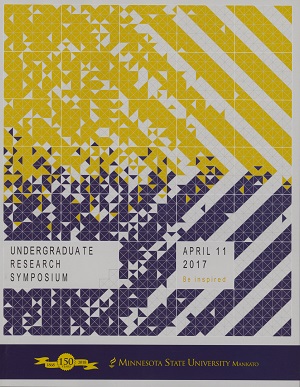Perceptions of Kichwa
Location
CSU 202
Start Date
11-4-2017 11:05 AM
End Date
11-4-2017 12:05 PM
Student's Major
Anthropology
Student's College
Social and Behavioral Sciences
Mentor's Name
Chelsea Mead
Mentor's Department
Anthropology
Mentor's College
Social and Behavioral Sciences
Description
The purpose for my research was to identify and analyze the perspectives and preconceptions that non- Indigenous people have about the Kichwa Indigenous community, with an emphasis on their language ideologies, in Ecuador. I explored how non-Indigenous Spanish speakers conceptualize Kichwa in the area, language revitalization efforts, and the relationship overall with the Indigenous community. This research will help scholars working on Indigenous languages better address language ideologies that non-Indigenous peoples have about their languages. Clarifying language ideologies can be a potential starting point for conflict resolution and discovering common ground or deconstructing ideologies that hinder cooperation.
I interviewed nine participants in Spanish, asking them a variety of questions about their understanding and perceptions of the Kichwa language and culture. Going into my research I suspected to learn about at least some discrimination and/or negativity towards the Kichwa language. However, many of the people I interviewed said that the Kichwa language is viewed positively. They all personally supported the efforts of the Indigenous people and had good things to say about them. Learning how the non- Indigenous population perceives Indigenous languages can help foster cooperation between the groups and contribute to conflict resolution.
Perceptions of Kichwa
CSU 202
The purpose for my research was to identify and analyze the perspectives and preconceptions that non- Indigenous people have about the Kichwa Indigenous community, with an emphasis on their language ideologies, in Ecuador. I explored how non-Indigenous Spanish speakers conceptualize Kichwa in the area, language revitalization efforts, and the relationship overall with the Indigenous community. This research will help scholars working on Indigenous languages better address language ideologies that non-Indigenous peoples have about their languages. Clarifying language ideologies can be a potential starting point for conflict resolution and discovering common ground or deconstructing ideologies that hinder cooperation.
I interviewed nine participants in Spanish, asking them a variety of questions about their understanding and perceptions of the Kichwa language and culture. Going into my research I suspected to learn about at least some discrimination and/or negativity towards the Kichwa language. However, many of the people I interviewed said that the Kichwa language is viewed positively. They all personally supported the efforts of the Indigenous people and had good things to say about them. Learning how the non- Indigenous population perceives Indigenous languages can help foster cooperation between the groups and contribute to conflict resolution.
Recommended Citation
Denney, Mikayla. "Perceptions of Kichwa." Undergraduate Research Symposium, Mankato, MN, April 11, 2017.
https://cornerstone.lib.mnsu.edu/urs/2017/oral-session-07/3




